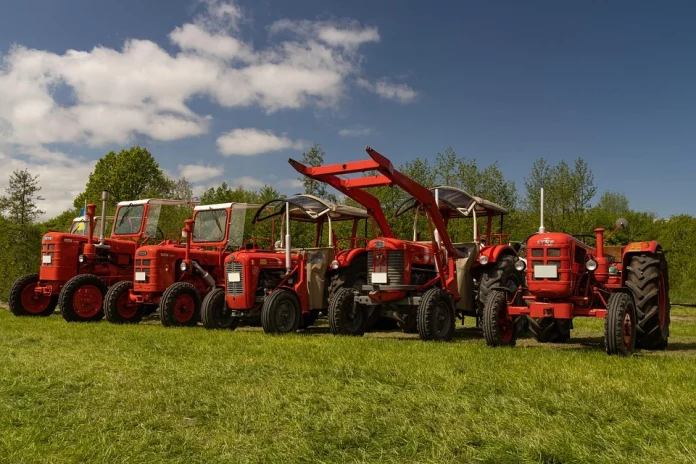Investing in large equipment is a significant financial decision, and understanding its resale value is crucial for businesses in agriculture, construction, and other heavy industries. Resale value depends on several factors, including brand reputation, machine condition, usage, and market demand. With used equipment sales reaching $60 billion annually in the U.S. alone, the resale market remains strong, but prices fluctuate based on economic conditions and technological advancements. Factors That Affect Resale Value:
1. Brand and Manufacturer Reputation
Equipment from well-established brands generally holds its value better. For instance:
- John Deere tractors tend to retain around 60%-70% of their original value after five years.
- Caterpillar excavators often maintain 50%-65% of their value after a decade, depending on maintenance.
- Komatsu and Volvo construction equipment also perform well in resale due to their durability and global demand.
Lower-tier brands or generic manufacturers may depreciate faster, losing up to 50% of their value within the first three years.
2. Age and Usage Hours
Heavy machinery typically depreciates as follows:
- First year: 15%-30% depreciation.
- Years 2-5: Steady decline of 5%-10% per year.
- After 10 years: Value stabilizes at 20%-40% of the original price, depending on condition and demand.
A combine harvester with 1,000 operating hours will typically sell for 70% of its original price, whereas one with 3,000+ hours may drop to 40%-50% of its value.
3. Condition and Maintenance History
Equipment with full-service records and regular maintenance can fetch 20%-30% more than poorly maintained machines.
- Replaced engine components, hydraulic systems, or tires can increase value.
- Rust, leaks, and worn-out parts significantly reduce buyer interest.
4. Market Demand and Economic Conditions
Market trends impact resale prices.
- High-demand periods: Prices rise during peak farming or construction seasons.
- Economic downturns: Used equipment demand may increase as businesses opt for second-hand machines instead of new purchases.
- Auction trends: In 2023, Ritchie Bros. Auctions reported a 15% increase in used equipment sales, especially in tractors and excavators.
5. Technology and Features
Machines with advanced features such as GPS automation, telematics, and fuel efficiency systems retain 15%-25% more value than outdated models. For example:
- A GPS-enabled tractor may sell for $10,000-$15,000 more than a non-GPS model of the same age.
- Electric and hybrid equipment is gaining resale value as sustainability concerns grow.
Best Practices for Maximizing Resale Value
- Regular maintenance: Keep a log of all services and part replacements.
- Proper storage: Protecting machinery from extreme weather can increase resale value by 10%-20%.
- Sell at the right time: Auctions and private sales tend to fetch better prices when demand is high.
- Upgrade strategically: Adding modern features, such as fuel-efficient engines or smart technology, can boost resale value.
Better Resale of Large Equipment
Large equipment can retain significant value in the resale market, but brand, condition, and market trends play a major role in pricing. By keeping equipment well-maintained, understanding depreciation rates, and selling at the right time, owners can maximize their return on investment. With the growing demand for high-quality used machinery, businesses that plan strategically can make the most of their equipment resale opportunities.

